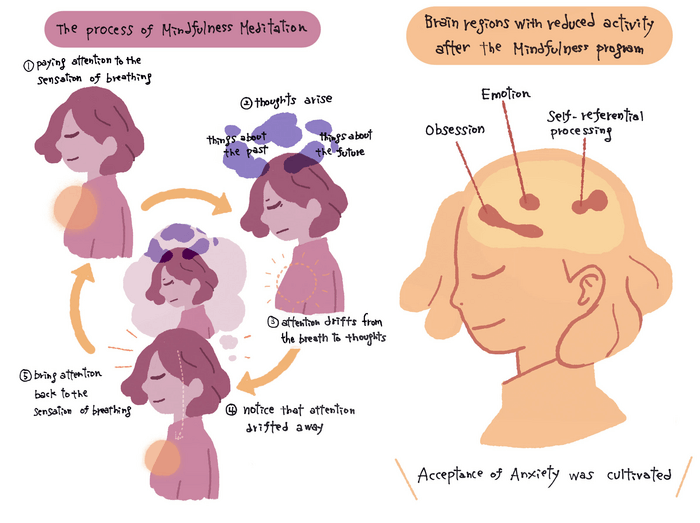
(© Maridav - stock.adobe.com)
KYOTO, Japan — Eating disorders, especially anorexia nervosa (AN), often fall into the category of psychiatric illnesses that have an association with poor self-esteem. This can stem from harmful societal expectations, making it much more complex to resolve. Fortunately, researchers from Kyoto University say meditation therapy is effective in reducing common anxieties seen in anorexia patients.
In recent years, mindfulness training has become a hot topic in the wellness and mental health field. Even more recently, healthcare professionals and researchers have begun to take interest in it in order to see how it could improve patient outcomes. For anorexia, a psychiatric eating disorder characterized by severe weight loss as a result of extreme anxiety about body image and weight, mindfulness has been an integral part of addressing it around the world. However, its efficacy in clinically resolving the severe weight and muscle loss has yet to be studied.
Mindfulness and meditation work in tandem with other another. Mindfulness helps to promote having a healthy awareness of one's circumstances and to accept them. Meditation is an effective tool to reach this state of mindfulness. Keeping this in mind, this research team created a four-week mindfulness meditation program to monitor changes in the brain by using tasks designed to trigger weight-related anxiety. They then addressed the anxious feelings by helping patients work through them mindfully. Researchers encouraged acceptance of their situations instead of trying to avoid them, which is commonly seen in these patients.

Mindfulness can teach acceptance of anxiety
“We focused on the possibility that patients with AN try to avoid their crippling anxiety about weight gain and self-image by restricting food or vomiting,” says co-author Masanori Isobe in a media release.
In order to analyze the ability to regulate attention related to eating disorders, the researchers used functional magnetic resonance imaging (fMRI). They found that the participants were much less obsessive about self-image other related thoughts.
“Our results suggest that the participants in the study became better at accepting their anxiety as it is,” says lead author Tomomi Noda.
This work exemplifies why taking ample mental health measures to improve outcomes in anorexia patients and those with other types of eating disorders is so important, especially looking ahead.
“We anticipate practical implications of our results in clinical psychiatry and psychology and broader research into mitigating suffering through mindfulness, using the strategy of self-acceptance to regulate attention,” concludes group leader Toshiya Murai.
The findings are published in the journal BJPsych Open.










